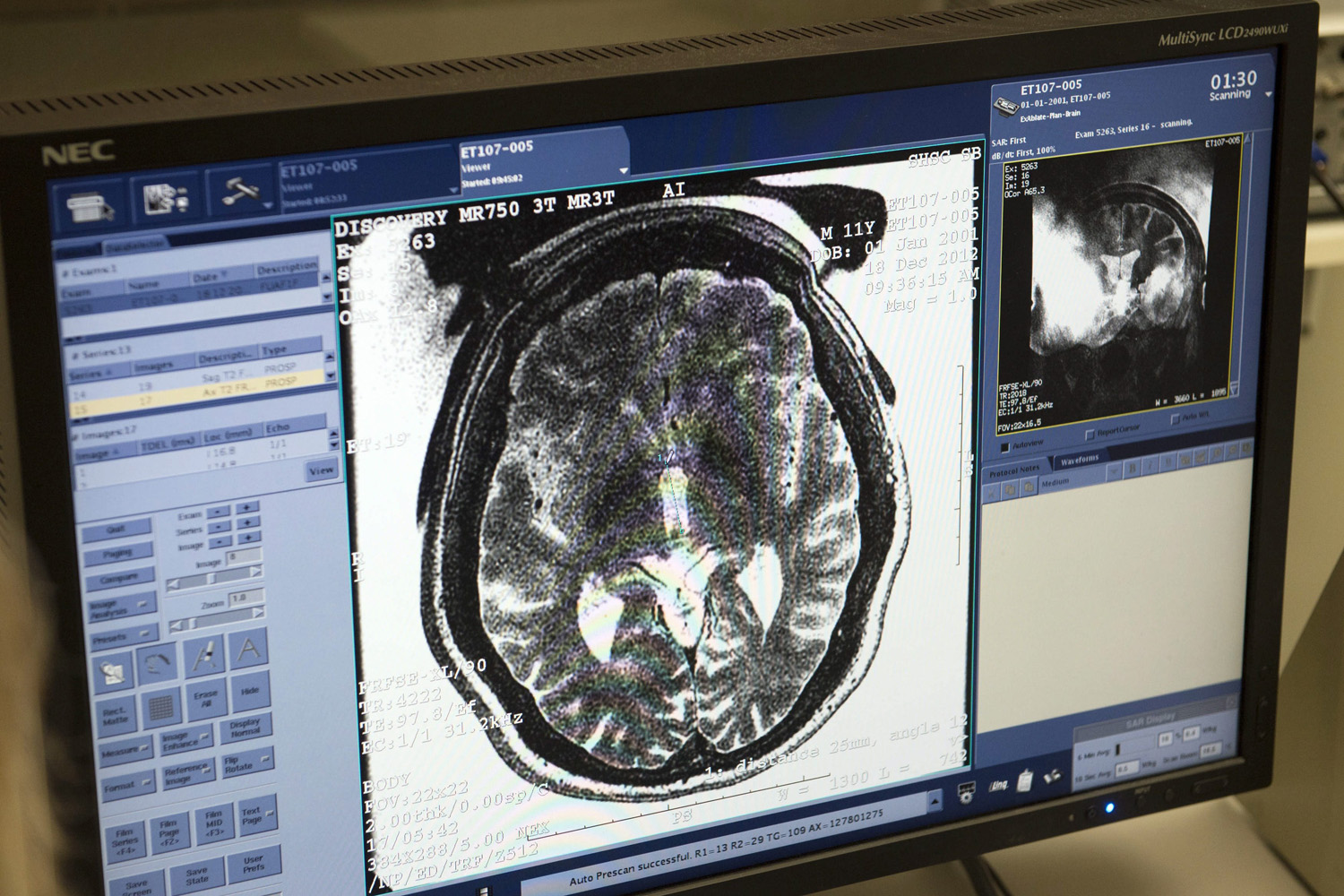University of Maryland researchers are using MRI-guided focused ultrasound on the globus pallidus to treat Parkinson’s symptoms. The ExAblate Neuro system was developed by Israel’s Insightec. The treatment is non-invasive, as it does not require a cut, but its ultrasound impacts a deep region of the brain, which is not with out risk.
Currently, drugs and (implanted) deep brain stimulation techniques treat tremor, rigidity and dyskinesia in Parkinson’s patients.
According to Professor Howard Eisenberg, this treatment could “help limit the life-altering side effects like dyskinesia to make the disease more manageable and less debilitating.”
During the 2-4 hour outpatient procedure, patients lie in an MRI scanner with a head-immobilizing frame fitted with a transducer helmet. Ultrasonic energy is targeted through the skull to the globus pallidus, and images acquired during the procedure give physicians a real-time map of the area being treated. Patients are fully awake and able to interact with the treatment team, allowing the physicians to monitor immediate effects and make necessary adjustments.
